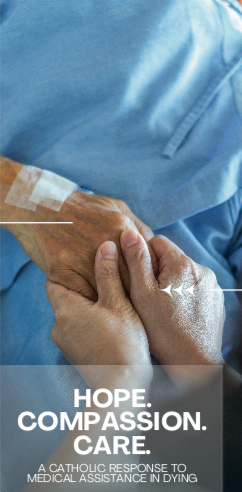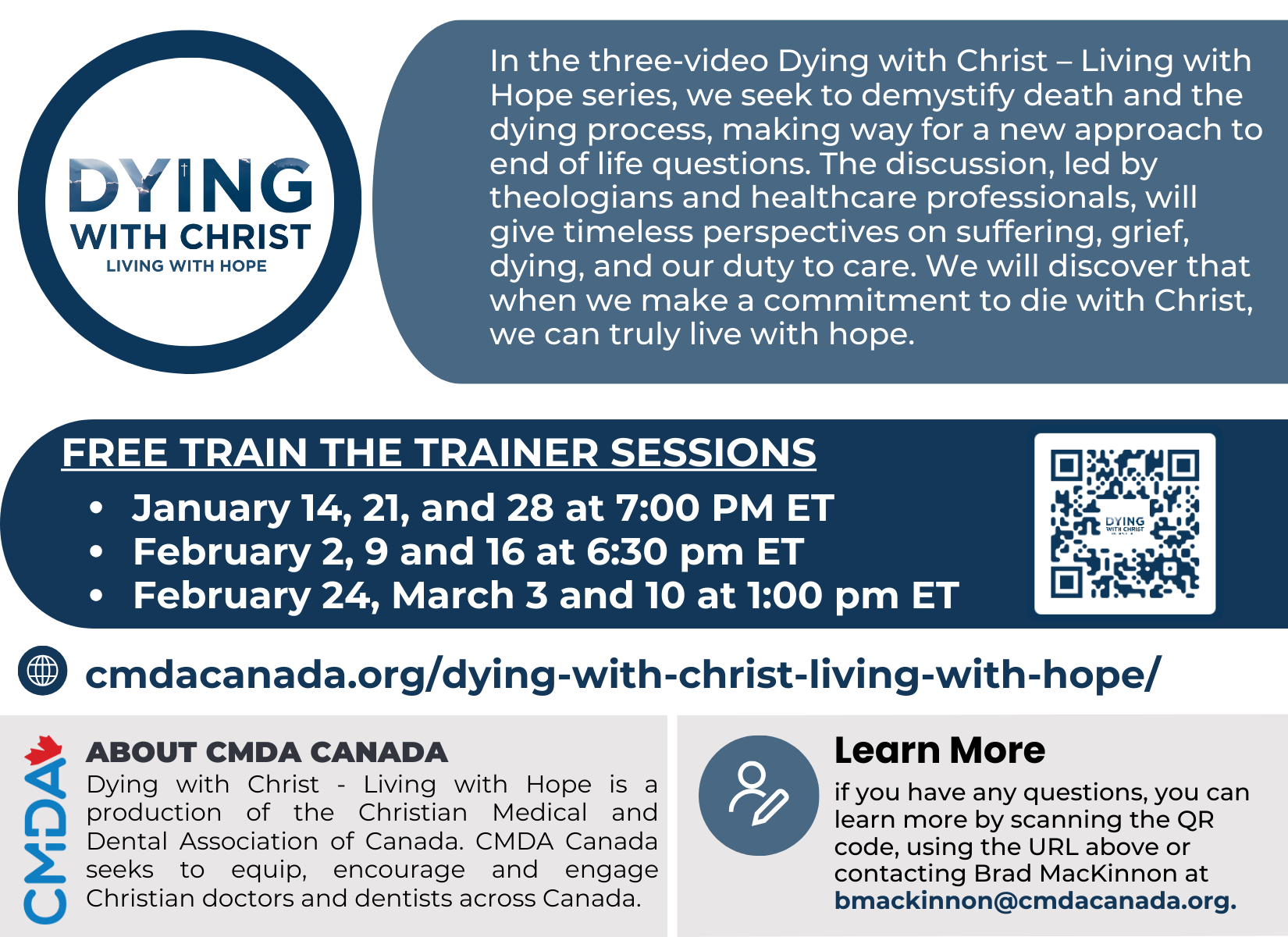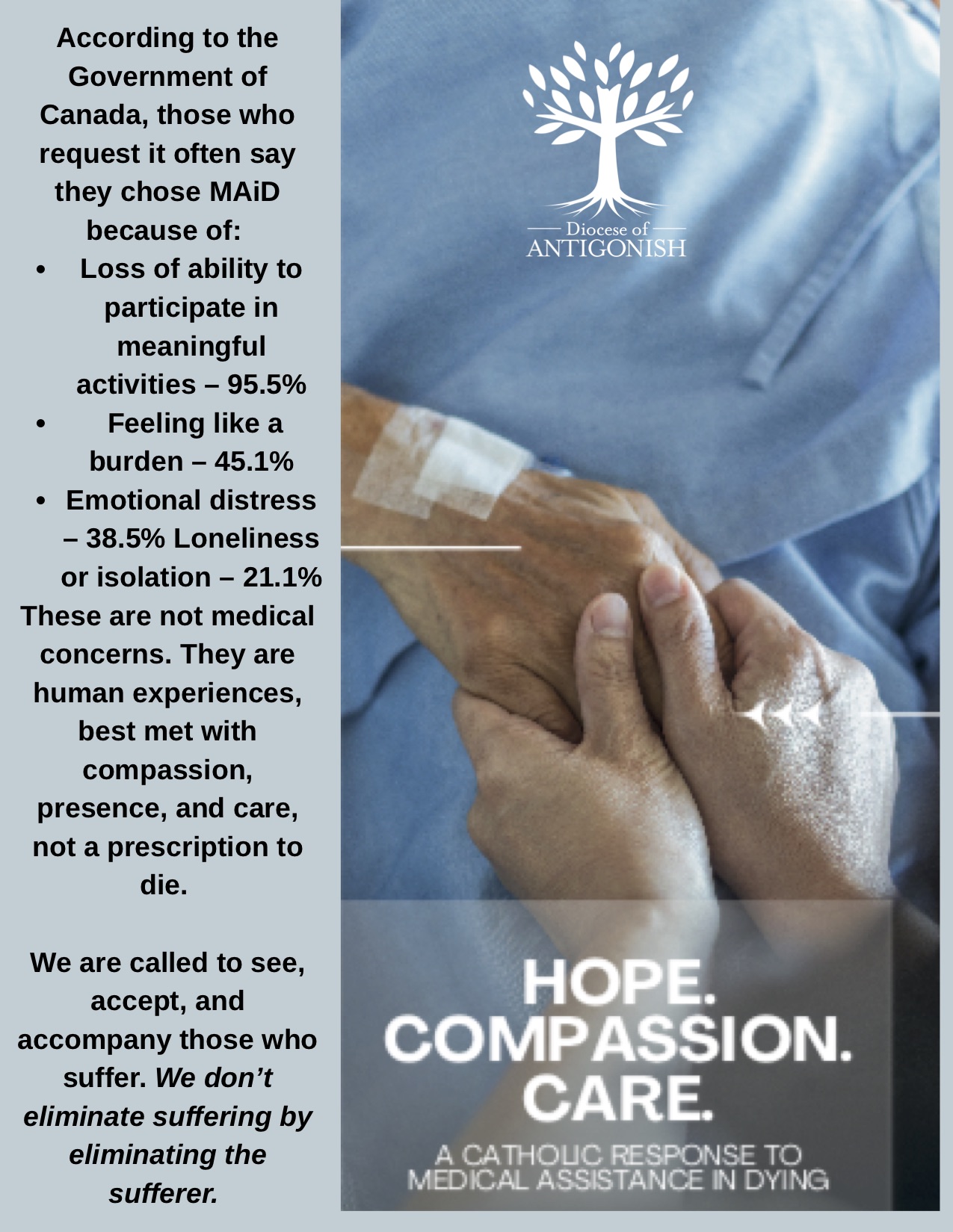On Sunday, November 2, the Feast of All Souls, when we pray for those who have died and reflect on how we, as Christians, view death, it was considered an appropriate time also to highlight our opposition to MAiD. Bishop Kirkpatrick requested that every parish affirm that all life is sacred from conception to natural death and that Medical Assistance in Dying, also known as MAiD, is contrary to our Christian faith.
Read Bishop Kirkpatrick’s homily
Watch Bishop Kirkpatrick’s homily via the Nov. 2 livestream from St. Ninian’s Cathedral
Brochures titled ‘A Catholic Response to Medical Assistance in Dying’ have been made available to our parishes, and are also available at our diocesan offices and can be downloaded here.
What’s Wrong with MAiD?
A Homily by Deacon Larry Worthen
Executive Director, Christian Medical and Dental Association of Canada
This homily was given on the 33rd Sunday in Ordinary Time, sharing the current situation in Nova Scotia regarding MAiD and the plight of our doctors.
www.cmdacanada.org
We are invited to write Premier Tim Houston and our local MLAs to express our opposition to MAiD and our support for palliative care.
Sample letter to Premier Tim Houston
Medical Assistance in Dying, or MAiD, is also known as euthanasia or assisted suicide. According to the Christian Medical and Dental Association of Canada, more than 60,000 Canadians have died by euthanasia or assisted suicide since 2016. “What started as an exception for the terminally ill has expanded far beyond what anyone imagined. Currently, MAiD is available to people who are not dying, including people with disabilities or chronic conditions. Soon, MAiD will be available to people with mental illness, and there are discussions about giving MAiD to children and people unable to consent at the time of the procedure.”
The Church explicitly states that MAiD or intentional euthanasia is gravely contrary to the dignity of the human person, and promotes palliative and hospice care that never abandons anyone.
Frequently Asked Questions about Palliative Care
(Adapted from the Archdiocese of Toronto)
What is palliative care?
Palliative care is the Catholic response to end-of-life care. It affirms that every human life is sacred despite any illness. It is compassionate both towards individuals and their families.
Why choose palliative care?
Palliative care affirms the intrinsic value of every life, given to us by God. It neither seeks to hasten nor postpone death. It manages pain, helping individuals navigate their symptoms while in treatment or helps alleviate physical pain until natural death.
Who provides palliative care?
Palliative care usually involves more than one person because it recognises the integrity and sacredness of the whole person – their physical, psychological, social, spiritual, and religious needs. A team approach in palliative care includes coordinating clinical care expertise and practical supports between professionals, families, volunteers and the wider community. A single medical practitioner cannot fulfil all these roles.
When should one consider palliative care?
Palliative care is flexible. It can be used during the earlier stages of an illness, with treatments aimed at a cure, or at end of life when a cure is not possible.
Where does one receive palliative care?
Adults and children can receive palliative care at the hospital, at home, in long-term care homes and hospices, such as Hospice Cape Breton in Sydney.
Is palliative care different from hospice?
While the terms palliative and hospice care are often used interchangeably, they are different. Palliative care is available at any stage of an illness whereas hospice care is only available at the end of life when a cure is not possible and treatment is discontinued.
Where can one learn more about palliative care?
Further information is available at Palliative Care Society of Cape Breton
To learn more about MAiD and our Catholic response:








